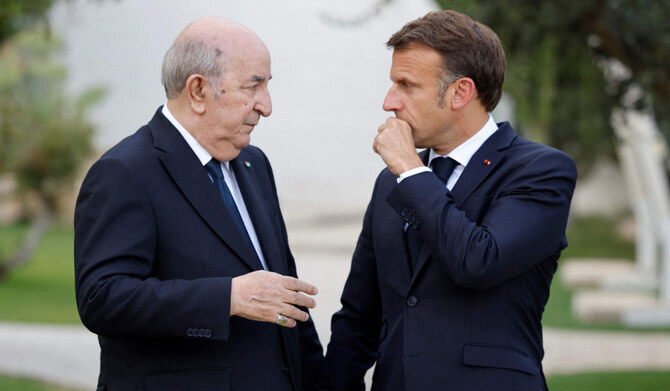
Minister: As tensions rise, France will decide how to respond to Algeria’s “hostility”
France’s foreign minister said Wednesday that President Emmanuel Macron and important government officials will meet in the next few days to determine how to react to what Paris considers to be increasing Algerian hostility.
Despite decades of complexity, relations between Paris and Algiers have deteriorated since Macron infuriated Algeria in July of last year by acknowledging a plan for autonomy for the Western Sahara region under Moroccan authority.
French officials claim that Algiers is implementing a strategy to eradicate France’s economic influence in the nation, despite the fact that diplomatic relations have not been severed. Since the summer, trade has decreased by as much as 30%.
Given the volume of trade and the fact that, according to French officials, 10% of France’s 68 million citizens have ties to Algeria, a bad relationship has serious security, economic, and social ramifications.
Jean-Noel Barrot accused Algeria of adopting a “hostile posture” and told parliamentarians, “The relationship between France and Algeria is not a bilateral relationship like any other, it is a relationship of deep intimacy.”
In order to talk about the standoff, Barrot has promised to travel to Algeria.
According to three diplomats, Algeria’s banking association orally tested the waters in November by proposing a direction to stop banking transactions to and from France, but decided against it due to the two nations’ close commercial relations.
France used to be a major exporter of wheat to Algeria, but diplomats and merchants say French companies are no longer being taken into consideration in bids for wheat imports to Algeria.
Macron said that Algiers was “dishonoring itself” by arbitrarily holding Franco-Algerian writer Boualem Sansal, whose health has gotten worse in recent weeks, in spite of business.
Abdelmadjid Tebboune, the president of Algeria, has referred to Sansal as a French “imposter”.
A diplomatic spat also erupted last week after a number of Algerian social media influencers were detained in France and charged with inciting violence, despite demands on Macron’s administration to strengthen immigration laws.
Citing legal procedures, police sent one person back to Paris after deporting him to Algiers. Interior Minister Bruno Retailleau accused Algiers of attempting to degrade the former colonial power, which infuriated France’s right-wing parties.
Barrot stated that this, along with Sansal’s arrest, had compelled Paris to make a decision about how to react. “This is a violation of the texts that govern our relationship, and it is a precedent that we consider serious,” He added.
On Saturday, Algeria’s foreign ministry rejected that it was looking to escalate relations with France and claimed that the French far-right was spreading false information about Algeria.
PRIOR TRAUMA
The trauma of the 1954–1962 independence war, in which the North African nation separated with France, has left a scar on the two nations’ relationship.
Approximately 35,000 French and up to 30,000 Muslim “harkis” who served in the French army against Algerian insurgents were killed, together with about 400,000 Algerian fighters and civilians.
Over the years, Macron has advocated for greater openness about France’s relationship with Algeria, claiming that the country’s “politico-military system” has rewritten the country’s colonization history on the basis of “a hatred of France.”
According to Jalel Harchaoui, associate fellow at the Royal United Services Institute, the impasse between the two nations is getting worse.
“Algiers has every intention of remaining steadfast, notwithstanding the claims of many Parisian politicians that they wish to pressure Algeria to compromise. The fact that France is far less significant to Algeria’s economy now than it was a few years ago gives it even more confidence,” he said.
All Categories
Recent Posts
Tags
+13162306000
zoneyetu@yahoo.com



